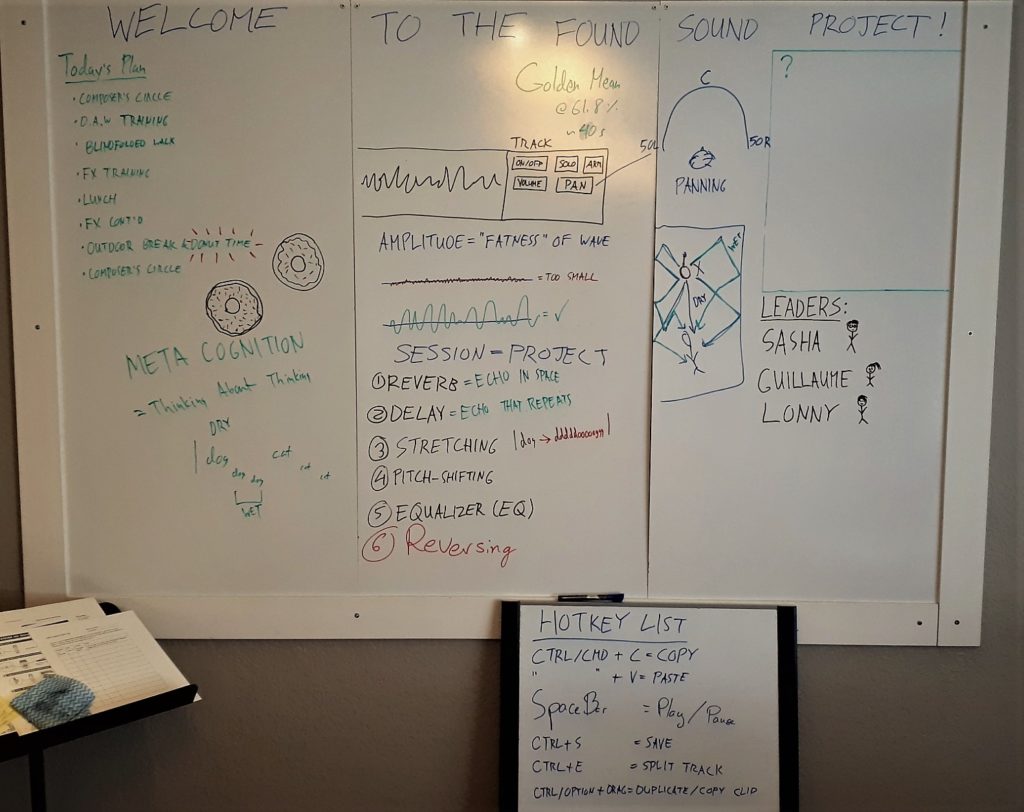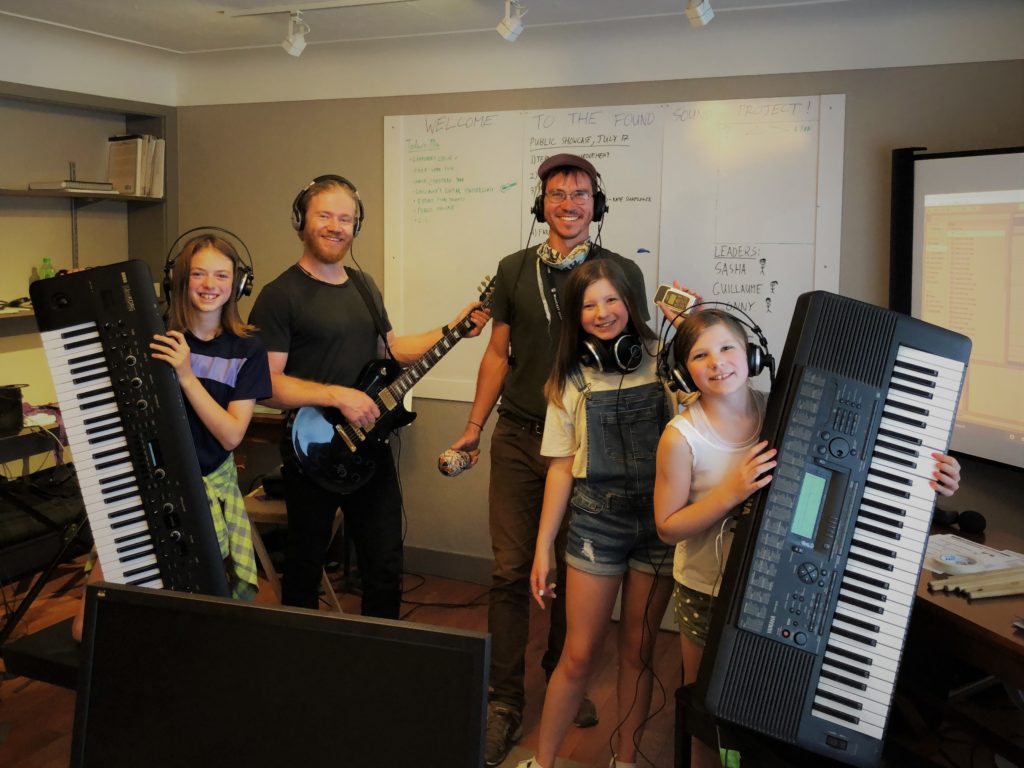
Summary:
The Found Sound Project (FSP) is an all-day music summer camp for youth aged 9 and up. Over five days, learners are introduced to the fundamentals of field recording and digital music production. Learners explore the neighbourhood of Oak Bay while using handheld field recorders to capture sound from the environment. These captured samples provide source material for composing music using a variety of digital tools. Each composer produces a unique piece of sound art driven by their curiousities, musicianship and personal aesthetic. Throughout the process, the composers receive instruction in key skills including deep listening, digital music production, field recording and composition. At the end of the week, their works are presented in a final showcase where the composers publicly demonstrate their inspiration and learning.
Field Recording:
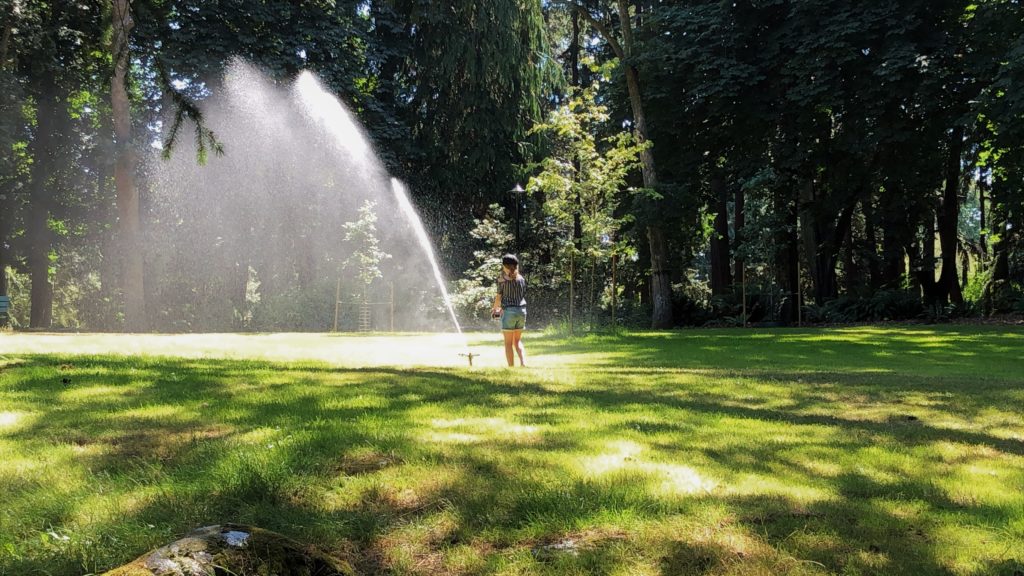
In an effort to broaden the young composer’s concept of what constitutes artful sound, the FSP encourages learners to seek music in the environment around them. Mornings are dedicated to activities that involve exploring local environments, conducting active listening exercises and hunting for novel and intriguing sounds. Each composer uses a handheld Zoom recorder to capture naturally-occurring samples and to ‘play the environment’ by interacting with objects and manipulating the world around them. This process provides a catalogue of sound samples to be used in compositions, either in their original or manipulated form.
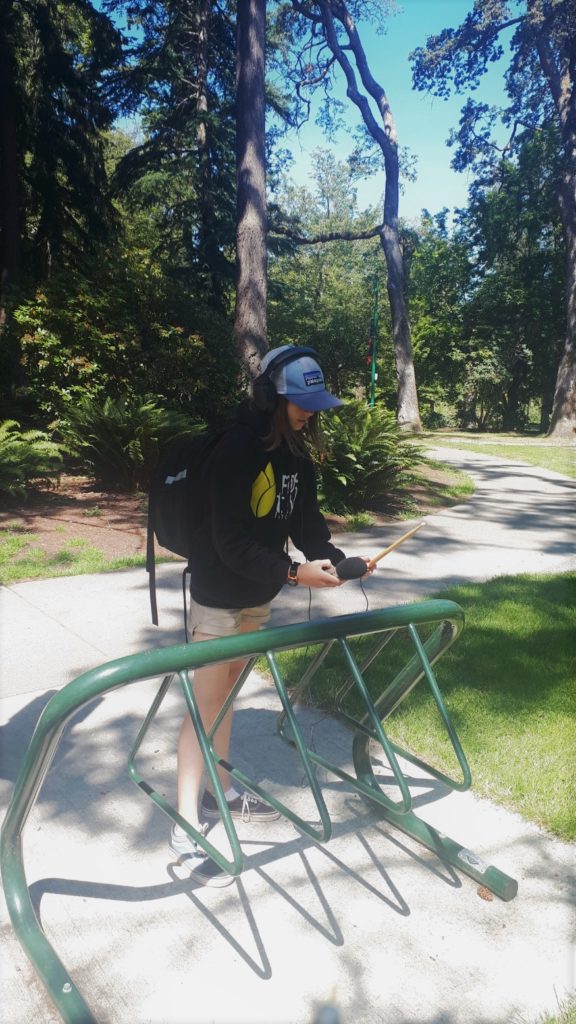
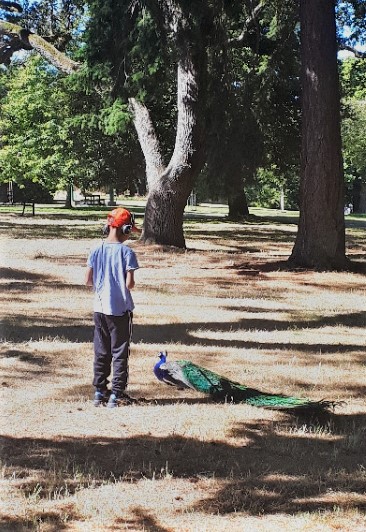
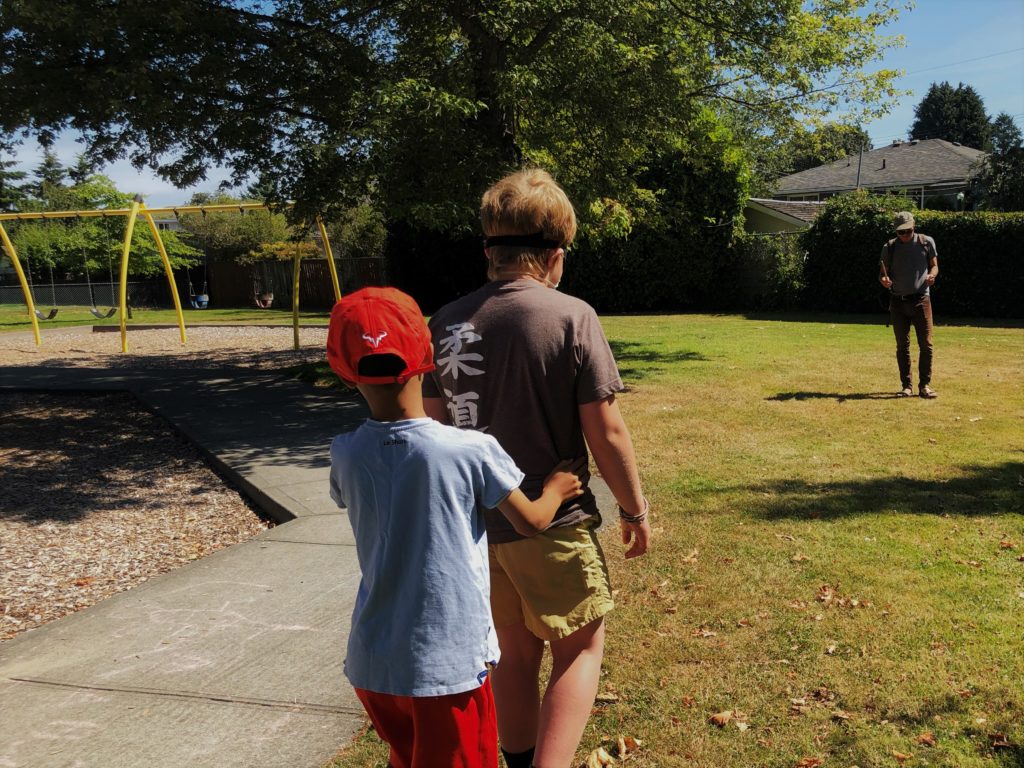
Digital Music Production:
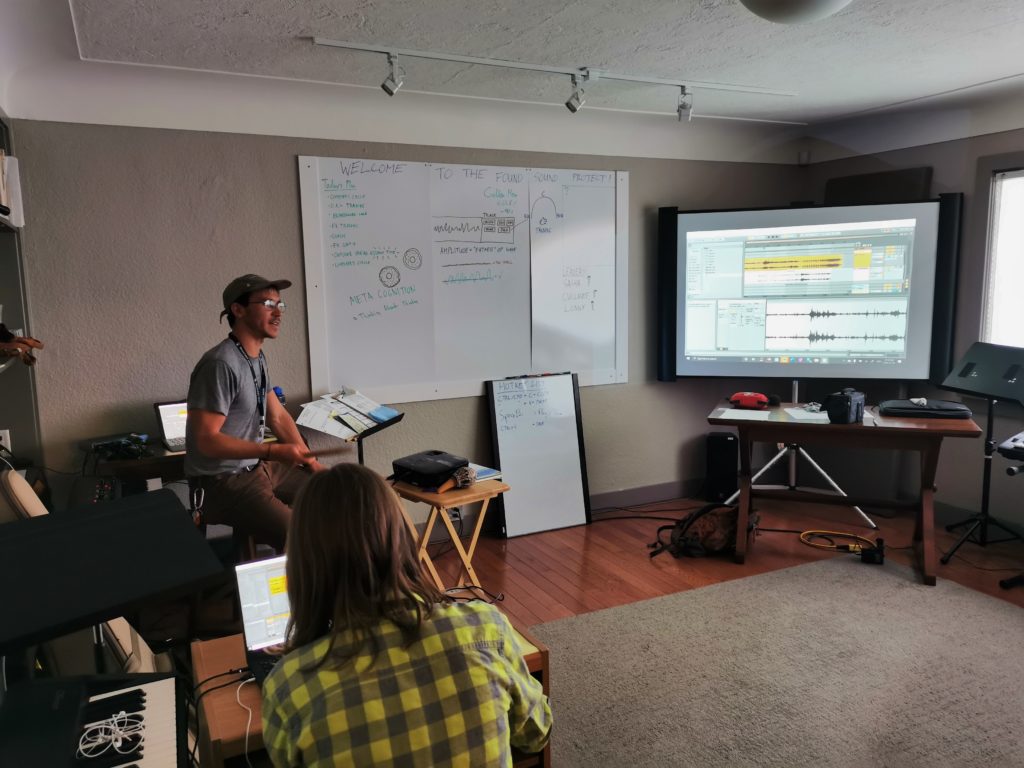
The other major component of the FSP involves learning to use digital music technology. Each learner receives instruction in the music production software Ableton Live 10. Ableton is a modern editing suite which enables sound designers to arrange their recordings and manipulate them in many ways. Over the course of the week, learners gain fluency with arranging multiple tracks, creating dynamic stereo sound environments, manipulating samples and applying audio effects. Learners also gain experience with peripheral technologies including microphones, effects pedals, sequencers, audio interfaces and MIDI controllers. Early exposure to digital audio workstations (DAWs) like Ableton is a powerful learning opportunity. DAWs are more than software; they are sophisticated musical instruments. The creators of the FSP acknowledge the incredible value of learning to use these technologies early in a musician’s development. Working with DAWs scaffolds important higher-order concepts including arrangement, orchestration, audio manipulation, improvisation and audio engineering.
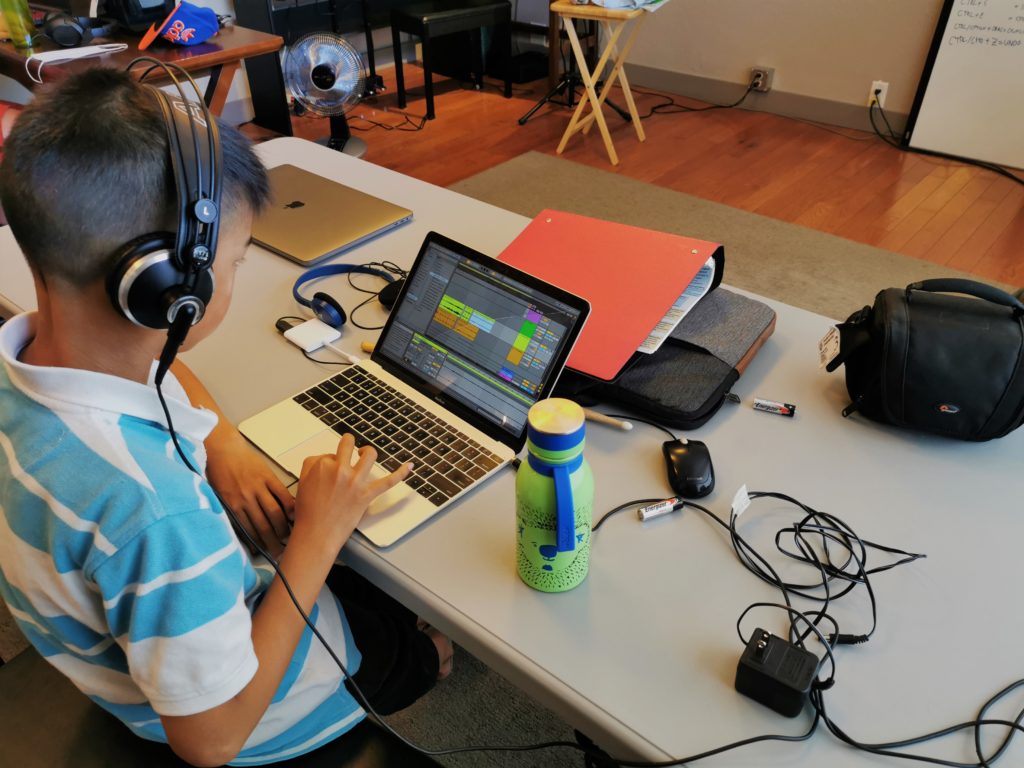
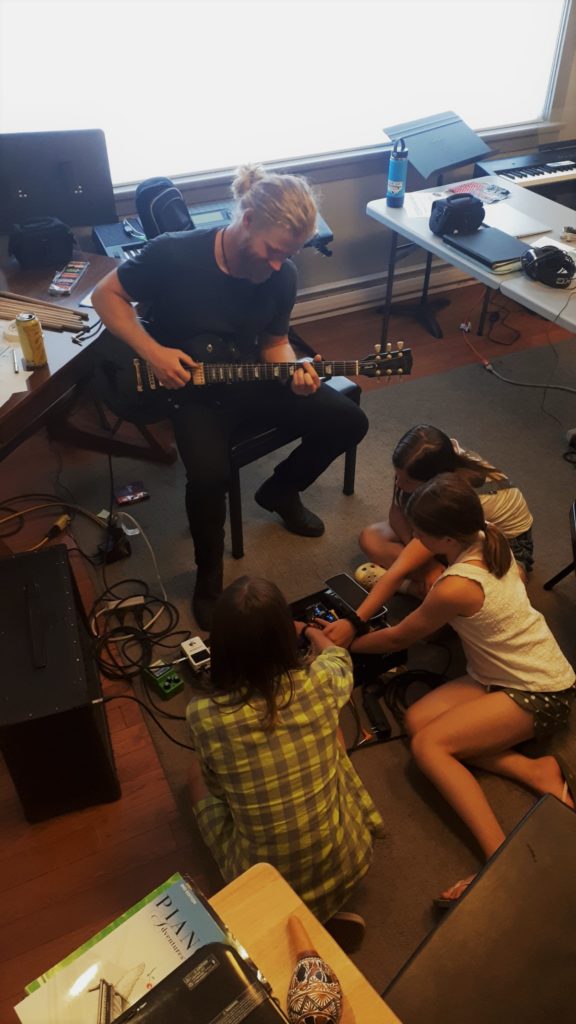
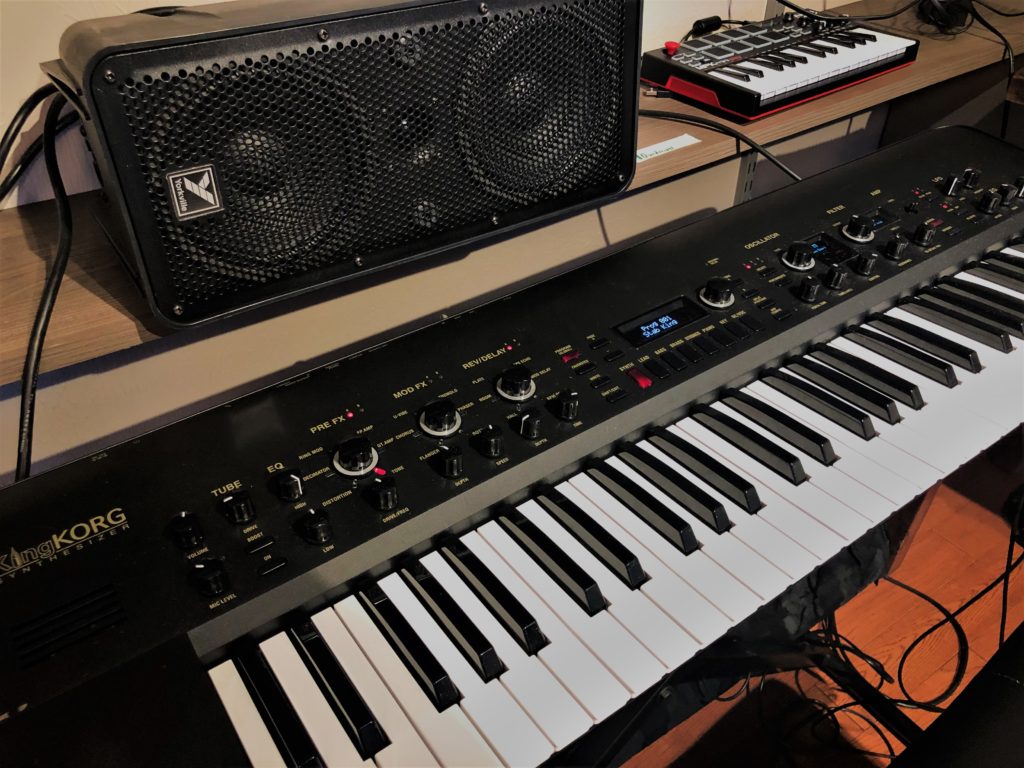
Learner-Centered Approach:
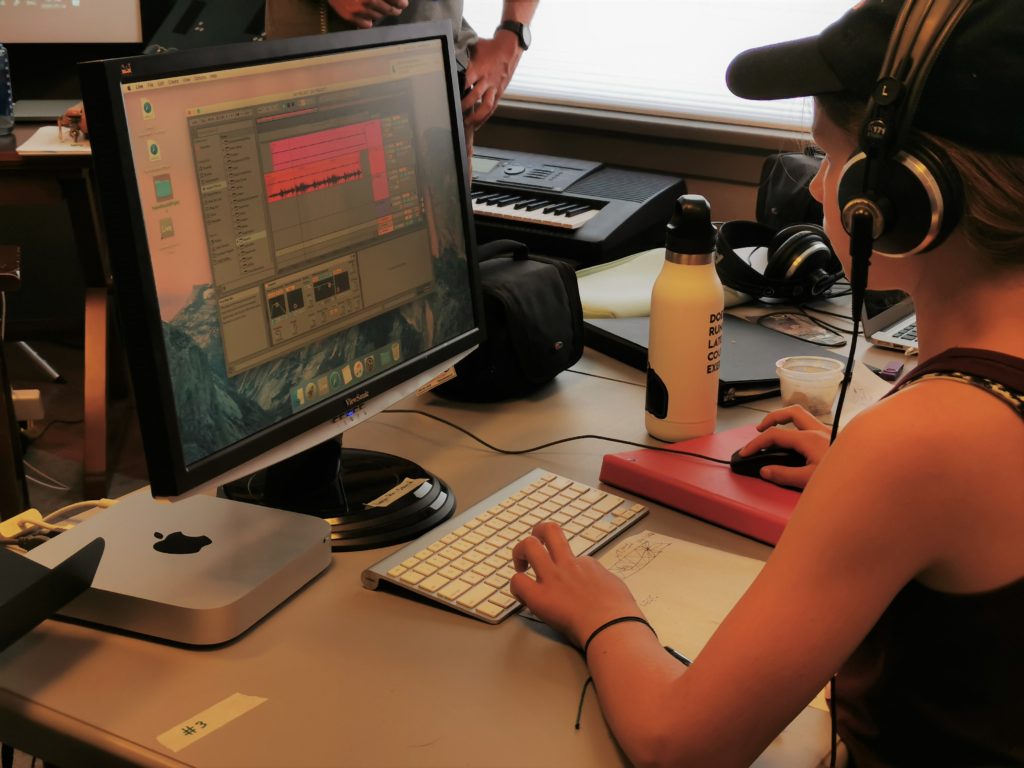
The FSP is grounded in a personalized learning model. All camp participants pursue a curriculum designed to introduce them to the fundamental skills required for digital music composition. However, within this process, each composer is encouraged to pursue their own path of inquiry. The camp is structured so that control of learning steadily migrates from the teacher to the learner as the camp progresses. Early activities are lead by teachers and function to provide key technical skills and introduce the young composers to ways of thinking that underlie experimental music composition. By mid-week, the fundamentals have been conveyed and control shifts. Now, the young composers become the primary drivers of learning while the teachers assume the role of facilitator, coach and guide. By week’s end, each participant is provided an opportunity to publicly reflect on their process and product in the public showcase where they demonstrate their learning to others.

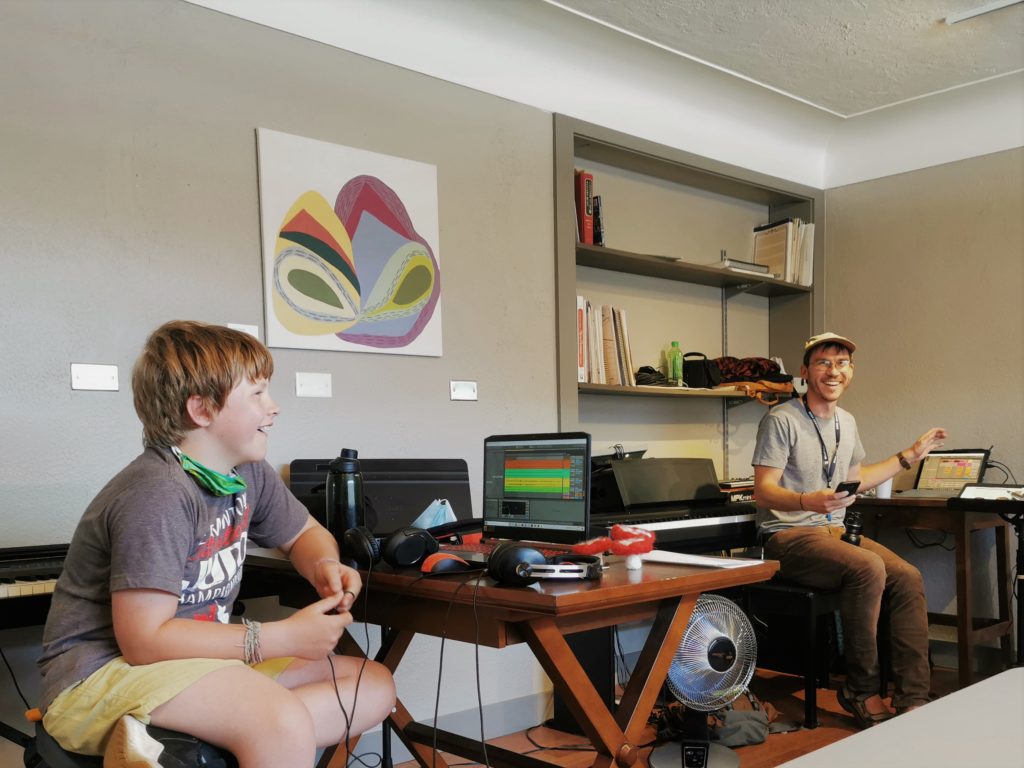
Professional Speakers & Transferable Skills:
Music technology lies at the intersection between shrewd science and expressive art. In a domain as broad as digital sound production there are many applications such as music production/recording, broadcasting, film sound, video game development and acoustic engineering. In order to introduce learners to these possibilities, the FSP welcomes local speakers to share their expertise with the composers through workshops. Speakers have included:
David Parfit, a sound designer and soundscape artist (Personal Site, Soundcloud, Instagram)
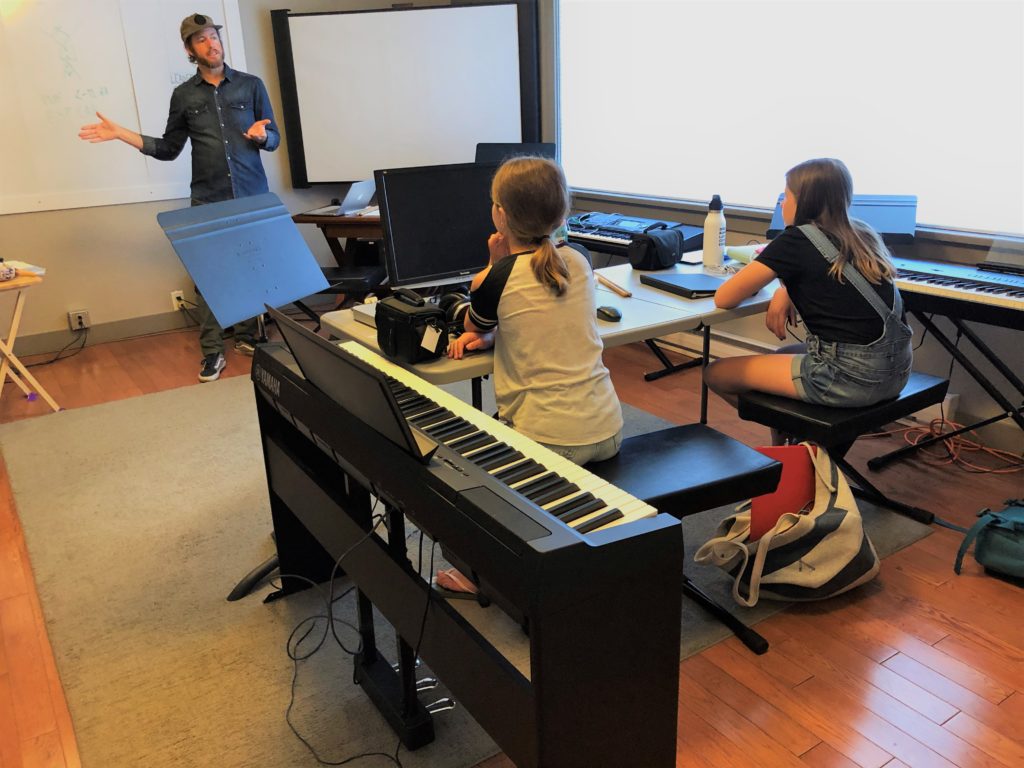
Sandy Rossignol, a local filmmaker (Studio 549, Instagram)
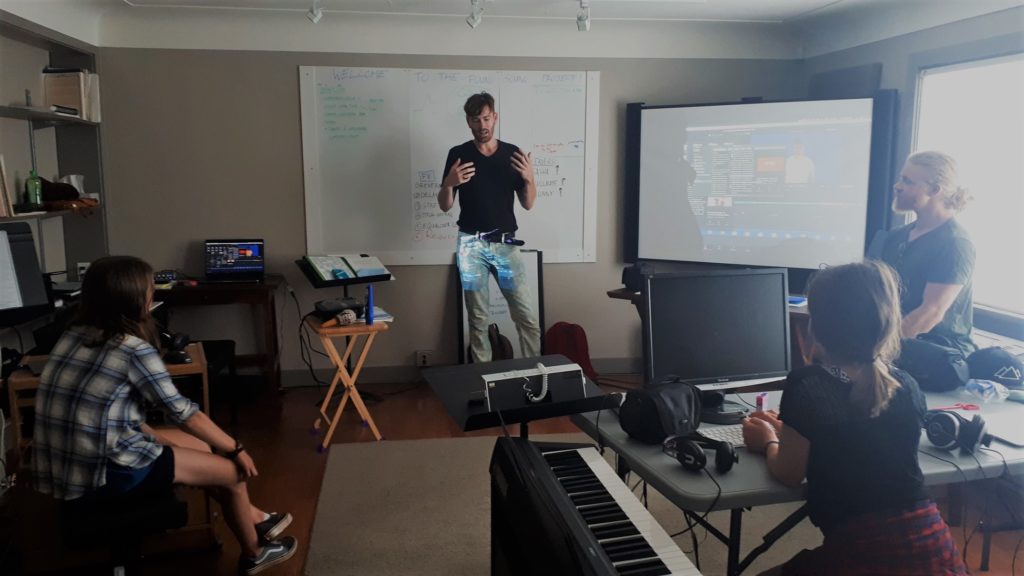
Though the camp is framed through the lens of music, it is our hope that learners take the skills they have acquired and apply them in whichever domains inspire them most. The Found Sound Project provides a suite of transferable skills that will benefit any creative. In terms of technical skills, learners gain experience with digital audio workstations, audio hardware, file management and troubleshooting. In terms of compositional skills, participants complete a self-directed project which requires them to brainstorm, ask questions, collaborate, plan a project, self-assess, revise and publicly share an original work.
